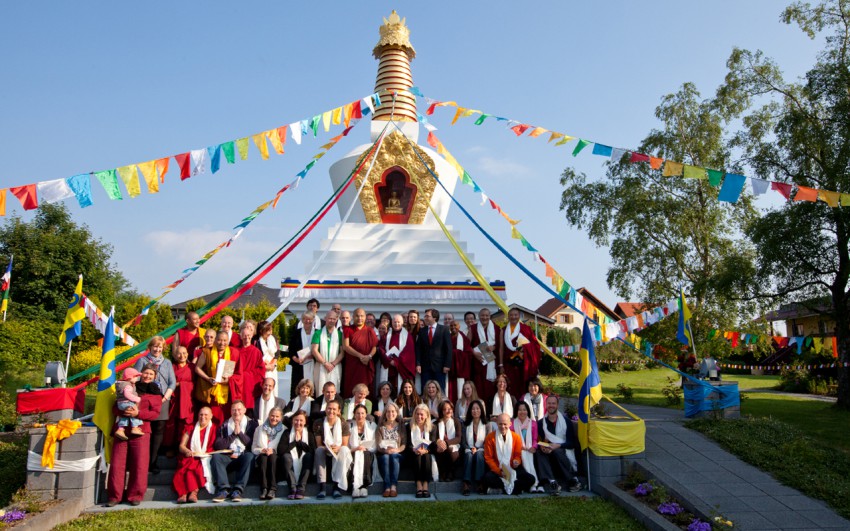
Our Sangha
The Pali or Sanskrit word “sangha” means something like “community” or “gathering”. In very general terms, the sangha means the community of all Buddhist practitioners who follow the Buddha’s path and the Buddha’s teachings (dharma). But often students of a particular master or institution will also refer to themselves as a sangha, which is then a more narrow meaning.
In spiritual terms, the sangha is one of the so-called “three jewels” consisting of the Buddha, the dharma, and the sangha. Buddhist practitioners take refuge in these, which means they place themselves under the protection of them. One often hears of the “sangha of the nobles” as well, which means those who have already liberated themselves from the illusion of the self and have therefore mastered the first level of the path to enlightenment.
The support of the sangha
No matter which sense the word is used in, the sangha is always a valuable source of support for practitioners. In the monastic traditions of Tibetan Buddhism, great value is placed on practising together with others. The sangha gives its members the opportunity to help each other in their practices, to exchange ideas on Buddhist topics, and to develop supportive friendships.
A good place for all of this is Kamalashila Institute. And so is the Karma Kagyü Gemeinschaft Deutschland e.V., which can serve as a strong reference point for travelling the Buddhist path and for helping each other.

